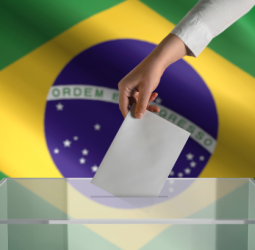Political Debates: Informing the Masses
Political debates have been an integral part of the democratic process for centuries, serving as a platform for candidates to discuss their policies and vision for the future. In recent times, these debates have gained even more importance as they become more accessible to the masses through various forms of media. With the rise of technology, political debates have evolved into a vital source of information for the general public, providing them with a deeper understanding of the candidates and their ideologies.
The purpose of political debates is to allow candidates to showcase their knowledge, experience, and ability to handle the challenges of public office. It provides a level playing field for all participants, giving them an opportunity to present their stance on crucial issues and address the concerns of the people. As such, it serves as a means to educate the voters and empower them to make an informed decision during the elections.
In the past, political debates were limited to being broadcasted on television and radio, reaching only a fraction of the population. However, with the advent of social media and live streaming, these debates have become easily accessible to a more extensive audience. This has not only increased the transparency of the debates but has also allowed the public to actively engage in the discussions. Social media platforms also serve as a tool for fact-checking, ensuring that false information is immediately corrected, and the public is presented with the truth.
Moreover, political debates have become a source of entertainment, attracting a wider audience, including the younger generation who may not be interested in traditional forms of political discourse. This has led to an increase in civic awareness and participation, which is crucial for a healthy democracy. The debates have also become a topic of discussion among friends, families, and communities, promoting further awareness and encouraging individuals to have informed conversations about politics.
It is essential to note that political debates also have their shortcomings. With emotions running high and the pressure to perform well, candidates may resort to personal attacks and mudslinging instead of focusing on important issues. This can create a negative image of politics and discourage individuals from participating in the democratic process. Additionally, the format of these debates may not allow for in-depth discussions on complex issues, and candidates may not have enough time to fully articulate their policies.
In light of this, it is crucial that political debates be conducted in a fair and impartial manner, allowing all candidates to have an equal opportunity to present their ideas. Moderators and fact-checkers must ensure that the debates remain focused on policy discussions and discourage personal attacks. Furthermore, there should be a diverse representation of candidates to provide a balanced view of the political landscape.
In conclusion, political debates have become an essential source of information for the masses, providing them with a deeper understanding of the candidates and their policies. As technology continues to advance, these debates will play an even more significant role in shaping public opinion and promoting civic engagement. It is the responsibility of both the candidates and the media to ensure that these debates serve their primary purpose of educating and informing the voters, ultimately contributing to a stronger and more informed electorate.
Political debates have been an integral part of the democratic process for centuries, serving as a platform for candidates to discuss their policies and vision for the future. In recent times, these debates have gained even more importance as they become more accessible to the masses through various forms of media. With the rise of technology, political debates have evolved into a vital source of information for the general public, providing them with a deeper understanding of the candidates and their ideologies.
The purpose of political debates is to allow candidates to showcase their knowledge, experience, and ability to handle the challenges of public office. It provides a level playing field for all participants, giving them an opportunity to present their stance on crucial issues and address the concerns of the people. As such, it serves as a means to educate the voters and empower them to make an informed decision during the elections.
In the past, political debates were limited to being broadcasted on television and radio, reaching only a fraction of the population. However, with the advent of social media and live streaming, these debates have become easily accessible to a more extensive audience. This has not only increased the transparency of the debates but has also allowed the public to actively engage in the discussions. Social media platforms also serve as a tool for fact-checking, ensuring that false information is immediately corrected, and the public is presented with the truth.
Moreover, political debates have become a source of entertainment, attracting a wider audience, including the younger generation who may not be interested in traditional forms of political discourse. This has led to an increase in civic awareness and participation, which is crucial for a healthy democracy. The debates have also become a topic of discussion among friends, families, and communities, promoting further awareness and encouraging individuals to have informed conversations about politics.
It is essential to note that political debates also have their shortcomings. With emotions running high and the pressure to perform well, candidates may resort to personal attacks and mudslinging instead of focusing on important issues. This can create a negative image of politics and discourage individuals from participating in the democratic process. Additionally, the format of these debates may not allow for in-depth discussions on complex issues, and candidates may not have enough time to fully articulate their policies.
In light of this, it is crucial that political debates be conducted in a fair and impartial manner, allowing all candidates to have an equal opportunity to present their ideas. Moderators and fact-checkers must ensure that the debates remain focused on policy discussions and discourage personal attacks. Furthermore, there should be a diverse representation of candidates to provide a balanced view of the political landscape.
In conclusion, political debates have become an essential source of information for the masses, providing them with a deeper understanding of the candidates and their policies. As technology continues to advance, these debates will play an even more significant role in shaping public opinion and promoting civic engagement. It is the responsibility of both the candidates and the media to ensure that these debates serve their primary purpose of educating and informing the voters, ultimately contributing to a stronger and more informed electorate.
You Must be Registered Or Logged in To Comment Log In?



 politics live casino
politics live casino















